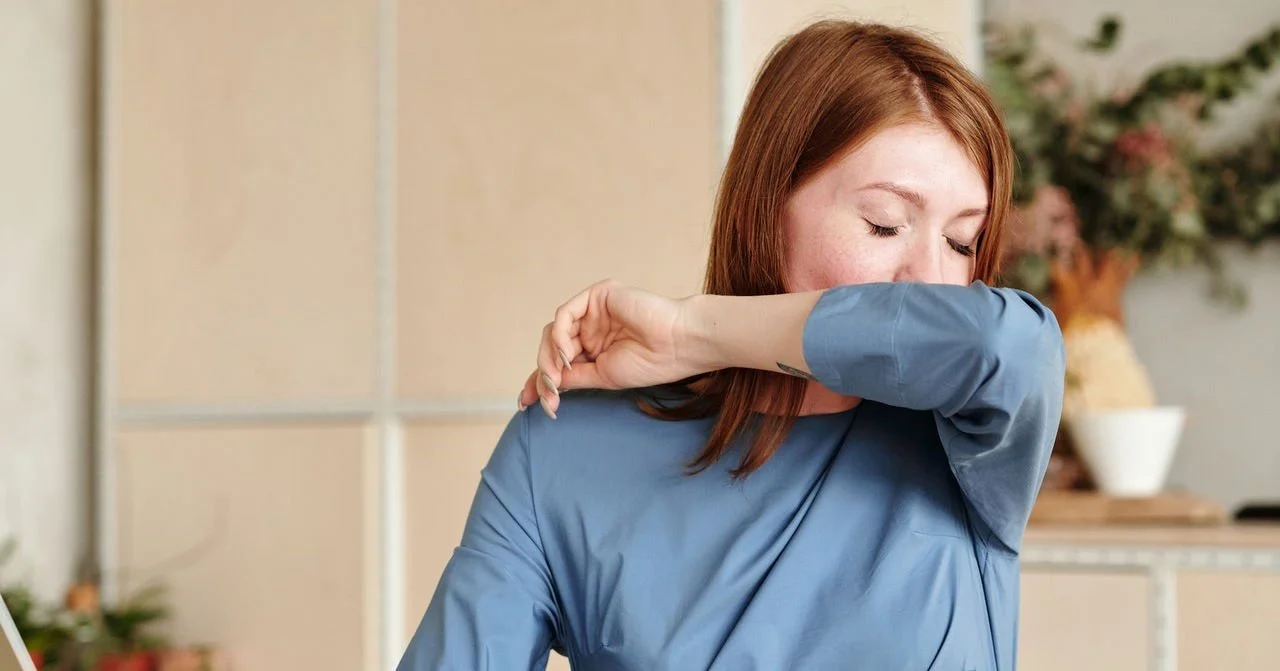How to Stop Bladder Leakage When Coughing
Oh no! You can feel it happening but have no way to stop it, you’ve got to cough and just know you might also pee your pants a little when you do! Though we all sometimes joke about it, there really isn’t anything funny about bladder leakage. In fact, many who suffer from bladder leakage find it uncomfortable, embarrassing, inconvenient and even expensive if they require pads, panty liners, or even incontinence underwear. So, what can you do to stop bladder leakage when coughing?
At V Lounge, we are changing the conversation when it comes to incontinence and want you to move freely and confidently through every adventure. Many of our patients ask us how to stop urine leakage when coughing, sneezing, laughing, or jumping. We offer a urinary incontinence treatment that could solve your bladder leakage woes, but we also want to help you view your pelvic floor health holistically. Emsella® treatments can help you stop peeing when you cough but we’ve also got some tips to help you out when you need it.
Don’t just take it from us, come see for yourself just how life-changing Emsella® can be and hear from our patients. Book your free demo today and let us help you regain your continence.
Tips of Preventing Bladder Leakage When Coughing
Empty your bladder –life happens, and sometimes you simply can't get to the bathroom as often as you’d like. When you have the ability to, try to empty your bladder as soon as you notice the urge to pee. This can help to prevent added stress on the bladder and stop leaks before they have a chance to happen.
Anticipate an oncoming leak - coughs and sneezes can happen suddenly, though most of the time you can likely sense that one is about to happen before it does. When you feel one coming on, take a moment to focus on your breathing. Diaphragmatic breathing can help to support your pelvic floor through the added stress of a cough or sneeze. If you can, consider trying a pelvic squeeze to engage your pelvic floor muscles and help them do their job.
Focus on strengthening your pelvic floor – you may have heard that Kegels are a great way to strengthen your pelvic floor. Though they can be very beneficial most people do not perform them correctly. Obtaining pelvic floor physiotherapy can help to ensure you are doing exercises that promote pelvic floor strength. You may also wish to consider trying Pilates for pelvic floor strength or other core exercises that may assist with strengthening your pelvic floor.
Drink water and eat enough fibre – it shouldn’t be a surprise that everything “down there” can be connected and when it comes to pelvic floor health, your bowels are important. Constipation can contribute to urinary incontinence and bladder control issues. Try to drink water and eat enough fibre through fruit and vegetables to promote bowel health.
Rule out more serious concerns – though in many cases peeing when you cough is related to stress incontinence, it is always a good idea to rule out more serious problems. Speaking with your medical doctor and consulting with a pelvic floor physiotherapist is a great starting point when looking to treat urinary incontinence. Our article Can Bladder Leakage Be a Sign of Other Issues provides some information on what other issues may be causing your bladder leakage concerns.
Don’t Be Embarrassed to Ask for Help
Talking about urinary incontinence can feel uncomfortable and embarrassing. At V Lounge, we are changing the conversation and want you to feel comfortable asking for the help you need. We are always here to answer your questions about pelvic floor health. From vaginal health to sexual wellness, we can’t wait to help you regain your confidence and continence.

